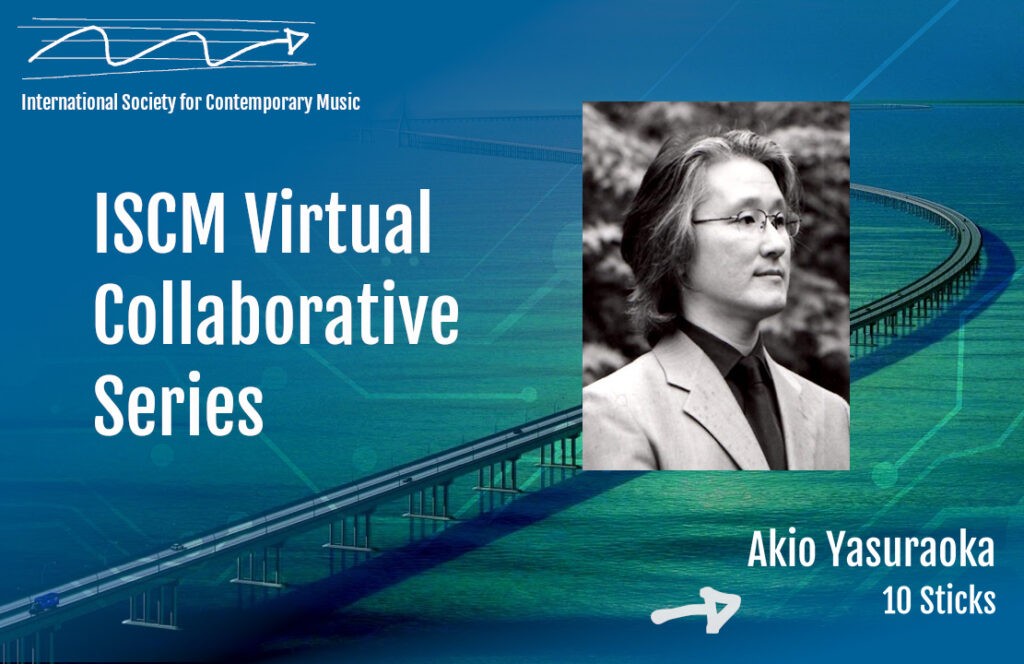Akio Yasuraoka: 10 Sticks

Akio Yasuraoka (b. 1958 in Tokyo) studied with composers Teruyuki Noda and Akira Miyoshi graduating Tokyo University of the Arts in 1984 with a master’s degree in music composition. He has received several awards and distinctions including the 1st Prize in Composition at the Music Competition of Japan in 1980 and the 1982 Japan Symphony Foundation Composition Award for his Symphony. He was a recipient of the 1994 Kenzo Nakajima Music Award. In 1985, Yasuraoka organized Art Respirant, a chamber orchestra of young performing artists and composers. Currently Yasuraoka is head professor of Tokyo University of the Arts. He is a member of the 21st Century Music Association and the Japan Society for Contemporary Music.
According to the composer, 10 Sticks, for 5 percussionists (2018), “does not include any keyboard percussion instruments. In other words, the players basically use only two sticks, instead of 3 or 4 pairs of mallets (with some exceptions). This is where the title comes from, and it symbolizes the concept of the piece itself. This, of course, forces a certain compositional limit in terms of tones. However, I wanted to pursue the possibility of expressions of percussion instruments in just this way. In each section, the five performers play the instruments of the limited material only and thus create various tones by using different sticks, holding sticks in different ways, or using different touches. The composition juxtaposes irregular and distorted rhythms and dependence on the performers’ spontaneity. The introductory part is performed only with tom-toms and other membranophones. Then the part with metal instruments (with short duration) follows, featuring cowbells hit in various ways. The middle section features metal instruments with long duration that characterized the Tibetan crotale, for example. The instruments mix together in the last section. This compositional structure will be obvious. I would like to mention that I am, although indirectly, influenced by unique and original passages that John Bohnam, the best drummer in rock music, created. I also thank Mr. Shiniti Uéno and the Phonix Refléxtion for giving me the opportunity to compose this piece.”
performed by Phonix Réflexion conducted by Shiniti Uéno
audiovideo recorded by Ran Himeda
Frank J. Oteri
